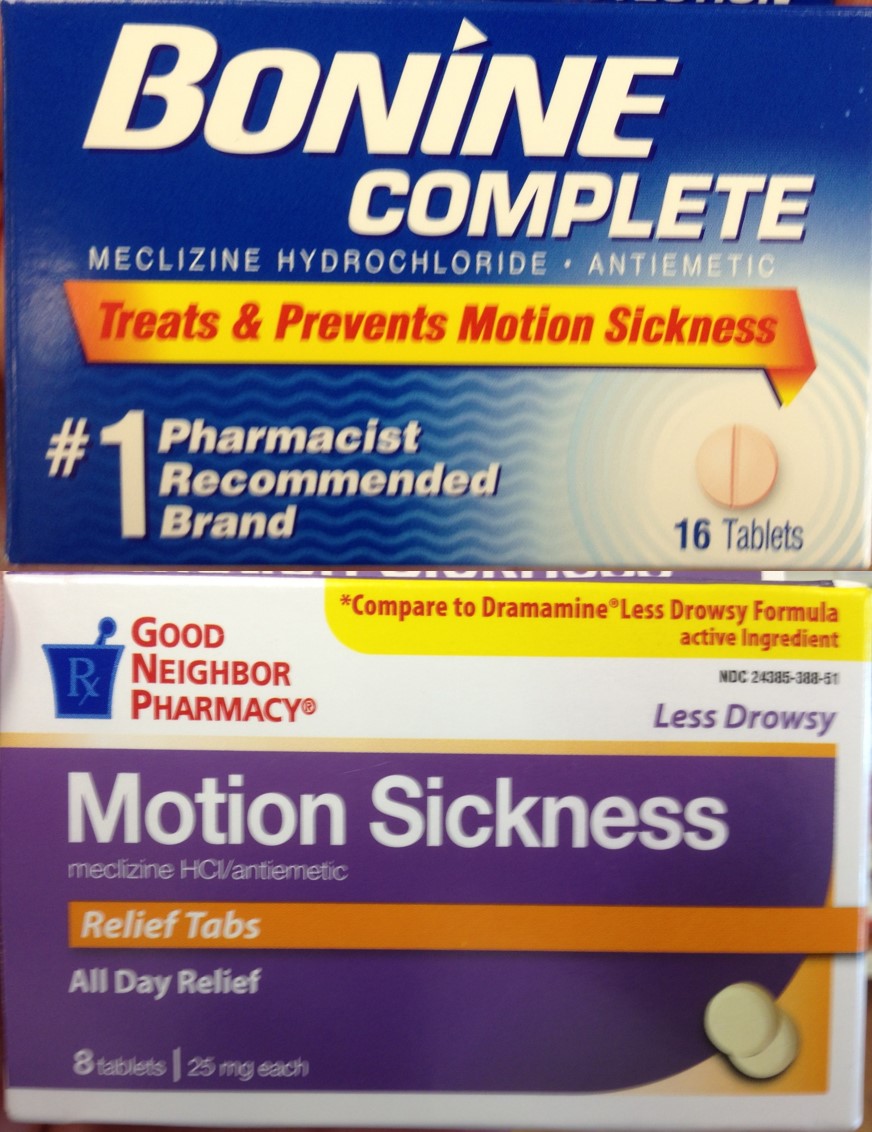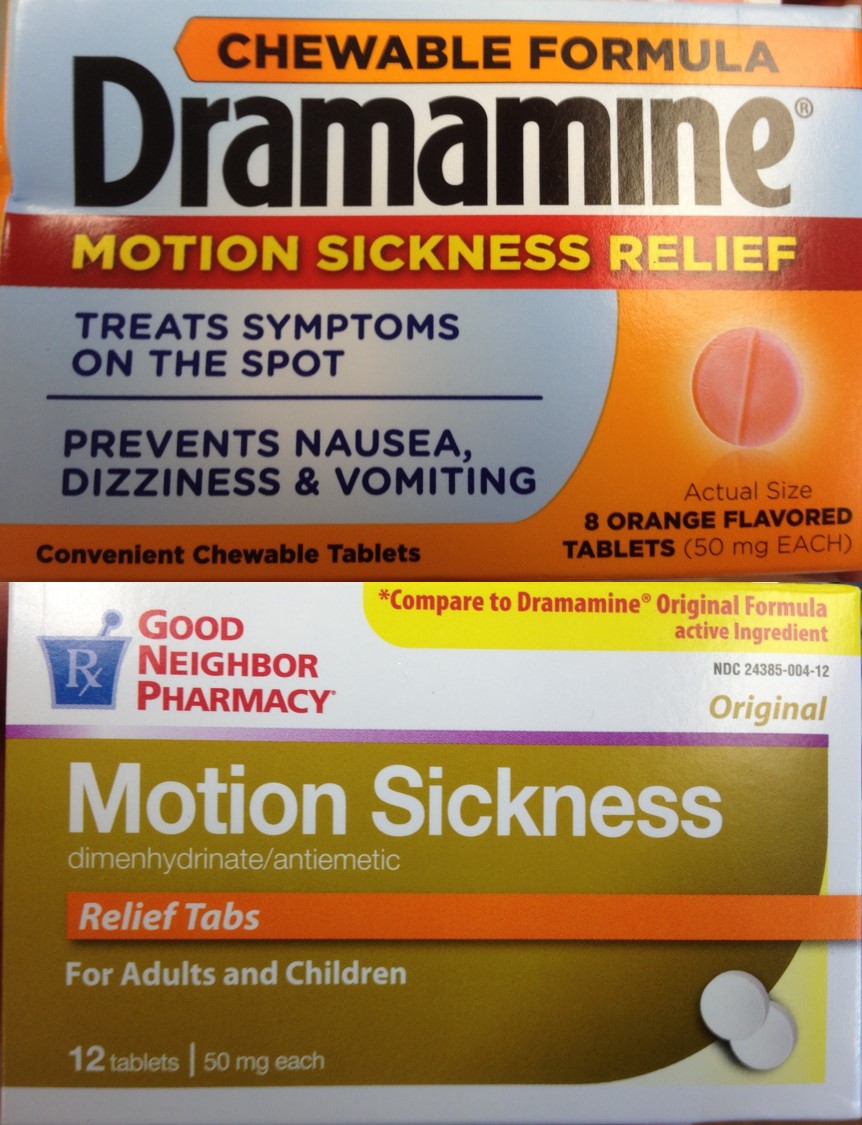Posts Tagged ‘Motion Sickness’
Motion Sickness: How to Become Vomit-Free Since 2015! By Our June Student Pharmacist, Mark Buenger.
As the peak travel season approaches, many of you will be travelling to destinations across the country and the world by land, air, and sea. Being stuck in a vehicle for hours on end can be uncomfortable for everyone involved, especially if you are experiencing motion sickness.
Most people associate motion sickness with an upset stomach, but the inner ear is actually to blame. The inner ear helps to control balance and when the ear is stimulated too much by the movement you experience during travel you will begin to experience motion sickness symptoms.
Another cause for motion sickness can be contradictory information that the brain receives. An example would be if your ears are sensing that there is movement, but your eyes are looking ahead at something that is standing still. Typically people will feel nauseous, dizzy, and experience some vomiting.
Motion sickness is more likely to affect women, children who are between the ages of 2 and 12, people who experience migraines or have a disorder affecting the inner ear (known as labyrinthitis), or people who are pregnant or use hormonal contraceptives. Fear and anxiety can also contribute.
The first step in prevention is to know and plan for how you are travelling:
- By ship: Request a cabin in the front or middle of the ship near the water level.
- By plane: Ask for a seat over the front edge of a wing and as soon as possible, direct the air vent to blow on your face.
- By train: Claim a seat near the front and next to a window. Look forward while the train is in motion.
- By car: Drive, if you can, or sit in the front passenger seat.
Other options you can try include:
- Focusing on the horizon or a distant object that is stationary.
- Do NOT read.
- Keep your head still by resting against a head rest.
- Do NOT smoke. This limits your ability to breathe and can lead to motion sickness.
- Do NOT overeat. Avoid spicy and greasy foods and alcohol.
- Eat dry crackers or drink a carbonated beverage to settle your stomach.
- Sleep.
- Open a window, if able.
If you are looking for medications to help out there are a couple options you can try without needing to get a prescription. One is meclizine (Bonine) and the other is dimenhydrinate (Dramamine). Both of these medications are antihistamines and should be taken 30-60 minutes before travelling. These medications will likely cause drowsiness, so do not drive until you know how these will affect you.
If these two medications do not provide the relief you are looking for, you may want to talk to your doctor about getting a prescription. There are a few prescription options, but the most commonly prescribed medication is scopolamine (Transderm Scop). This medication is available in a patch that is placed behind the ear 6-8 hours before travel. The effects of this medication can last up to 3 days and side effects may include dry mouth, drowsiness, blurred vision, and disorientation.
So travel safe, have fun, take this advice, and you can become vomit-free since 2015!
References:
http://www.mayoclinic.org/first-aid/first-aid-motion-sickness/basics/art-20056697
http://www.medicalnewstoday.com/articles/176198.php
https://www.merckmanuals.com/professional/injuries-poisoning/motion-sickness/motion-sickness
https://www.merckmanuals.com/home/injuries-and-poisoning/motion-sickness/motion-sickness
Images:
http://www.glogster.com/tanakh10/elisheva-rambam-mashiach/g-6kpb7ignh13dqkqt6degqa0





